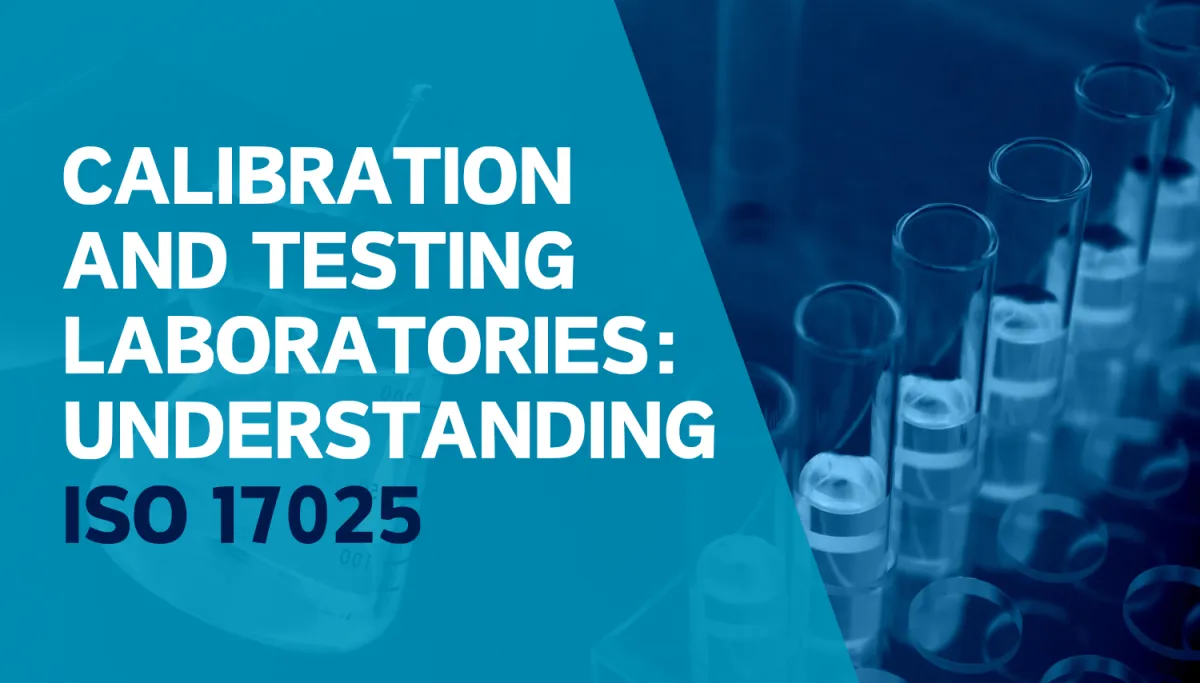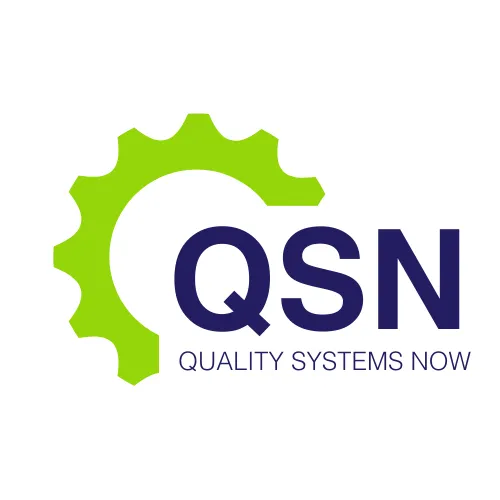LATEST NEWS

Calibration and Testing Laboratories: Understanding ISO 17025
In the field of calibration and testing, maintaining precision, accuracy, and credibility is paramount. ISO/IEC 17025, a globally recognized standard for the competence of testing and calibration laboratories, establishes requirements for these facilities to demonstrate their technical proficiency and ability to produce valid, reliable results. First issued in 1999 by the International Organization for Standardization (ISO) and the International Electrotechnical Commission (IEC), ISO 17025 has undergone revisions to stay aligned with advances in technology, risk management practices, and quality standards.
This paper explores the essential components of ISO 17025, emphasizing the importance of the standard for laboratories and the industries that rely on their results, and highlighting the requirements for achieving and maintaining accreditation.
Overview of ISO 17025
ISO/IEC 17025 specifies requirements for a laboratory's quality management system (QMS) as well as its technical competencies. This standard is applicable to any laboratory conducting calibration or testing, whether independent, within an organization, or integrated into manufacturing and service industries. ISO 17025 accreditation demonstrates that a laboratory’s processes, personnel, and equipment meet international quality and technical standards, enhancing confidence in the laboratory’s results both nationally and internationally.
The standard underwent its latest major revision in 2017, aligning with ISO 9001:2015's focus on risk-based thinking and a process-oriented approach. This revision introduced flexibility, allowing laboratories to tailor their QMS and procedures to best fit their unique processes, and reinforced the importance of impartiality, confidentiality, and competence in laboratory operations.
Key Components of ISO 17025
ISO 17025 outlines two primary sets of requirements: Management Requirements and Technical Requirements.
1. Management Requirements
The management requirements of ISO 17025 address a laboratory’s overarching quality management system and organizational practices to ensure consistent delivery of high-quality services. Key areas include:
Organization and Management Structure: Laboratories must maintain a defined structure that supports operational objectives, minimizes conflicts of interest, and preserves impartiality. Clear responsibilities and authorities should be established to facilitate transparent decision-making and ensure that results are free from internal or external influences.
Document Control: To maintain reliability and traceability, laboratories must implement a robust system for managing documents and records. Controlled documents, including standard operating procedures (SOPs), records of equipment calibration, and test methods, should be readily available, reviewed, and updated regularly.
Risk Management: In line with ISO 9001:2015, ISO 17025 emphasizes a risk-based approach. Laboratories are encouraged to identify potential risks to quality and mitigate them proactively, ensuring the integrity and accuracy of results.
Corrective and Preventive Actions: Laboratories are required to implement procedures for identifying and addressing non-conformities, including processes for root cause analysis and corrective actions. Preventive measures should also be in place to anticipate and mitigate risks before they affect laboratory results.
Internal Audits and Management Review: Regular internal audits are essential to maintaining ISO 17025 compliance, allowing laboratories to evaluate their performance and identify areas for improvement. Management reviews of the QMS should also be conducted periodically to assess overall effectiveness and alignment with organizational goals.
2. Technical Requirements
The technical requirements focus on a laboratory’s core competencies and the elements necessary for producing accurate, reliable results. These components cover personnel qualifications, equipment management, and test methods:
Competency of Personnel: Laboratories must employ qualified personnel with demonstrated technical skills and expertise relevant to their specific calibration and testing functions. Continuous training and competency assessments are essential to ensure that personnel remain up-to-date with industry standards, methodologies, and equipment.
Method Validation: Test methods used in calibration or testing must be validated to confirm their suitability for the intended purpose. Validation demonstrates that a method is capable of consistently delivering accurate results. In cases where standard methods are modified, or new methods are developed, laboratories must re-validate these methods to meet ISO 17025 requirements.
Measurement Traceability: ISO 17025 mandates that laboratories establish traceability of their measurements to national or international standards. This often involves calibrating laboratory instruments against reference standards from recognized calibration bodies. Traceability is critical for the comparability and reliability of results across different laboratories and regions.
Equipment and Maintenance: Proper selection, calibration, and maintenance of equipment are crucial for ISO 17025 compliance. Laboratories must maintain records of equipment performance, calibration, and maintenance schedules to ensure measurement accuracy and repeatability. Unscheduled repairs and recalibrations should be documented and assessed for their impact on test results.
Environmental Conditions: Laboratories must control environmental factors, such as temperature, humidity, and lighting, which could affect the outcome of tests and calibrations. Regular monitoring of environmental conditions ensures that results are not compromised by external variables.
The Accreditation Process
Achieving ISO 17025 accreditation is a multi-step process involving initial assessment, gap analysis, and formal evaluation by an accreditation body. Laboratories must prepare detailed documentation demonstrating how their QMS and technical practices align with ISO 17025 requirements. The accreditation body reviews this documentation, conducts on-site assessments, and evaluates laboratory performance through witnessing of tests or calibrations.
Once accredited, laboratories must undergo regular surveillance audits to maintain their status. Re-assessment typically occurs every two to five years, depending on the accreditation body’s requirements. Continued adherence to ISO 17025 not only reflects a laboratory’s commitment to quality but also reinforces its credibility among clients, industry peers, and regulatory bodies.
The Importance of ISO 17025 for Laboratories and Industry
ISO 17025 accreditation offers numerous benefits, strengthening laboratory reputation, improving operational efficiency, and fostering customer trust. For clients, ISO 17025 accreditation provides assurance that a laboratory's results are reliable and meet recognized international standards. This is especially vital for industries such as pharmaceuticals, food, environmental testing, and manufacturing, where accurate calibration and testing are essential for product safety and regulatory compliance.
Accreditation also facilitates acceptance of results across borders, simplifying regulatory approval processes for international trade. Laboratories operating under ISO 17025 standards contribute to global compatibility in measurements and product quality, enhancing overall market confidence.
Recent Developments in ISO 17025
With the rapid pace of technological advancements, laboratories face increasing demands for accuracy, transparency, and efficiency. The 2017 revision of ISO 17025 reflects this shift, introducing digital data management requirements and greater flexibility for laboratory QMS design. This flexibility allows laboratories to adapt their QMS to specific business models while maintaining core compliance principles, promoting efficient operations and cost-effectiveness.
The revised standard also addresses emerging fields, such as data integrity and information security, which are increasingly important as laboratories digitize their records and data analysis processes. Laboratories are now required to implement measures to protect data confidentiality, integrity, and accessibility, reducing the risk of unauthorized access or data tampering.
Wish to know more? Start Your Consultation Here >>
ISO 17025 provides a comprehensive framework for calibration and testing laboratories to deliver accurate, reliable, and consistent results. By adhering to this standard, laboratories not only demonstrate their technical competence but also contribute to global quality assurance and consumer confidence. With rigorous adherence to both management and technical requirements, ISO 17025-accredited laboratories serve as trusted partners to the industries that rely on precise calibration and testing for their products and services.
As the demand for high-quality and reliable laboratory results continues to grow, ISO 17025 remains a critical benchmark for laboratories committed to excellence. Embracing this standard empowers laboratories to advance in efficiency, credibility, and client trust, while supporting industries in achieving compliance, safety, and quality in today’s global marketplace.
